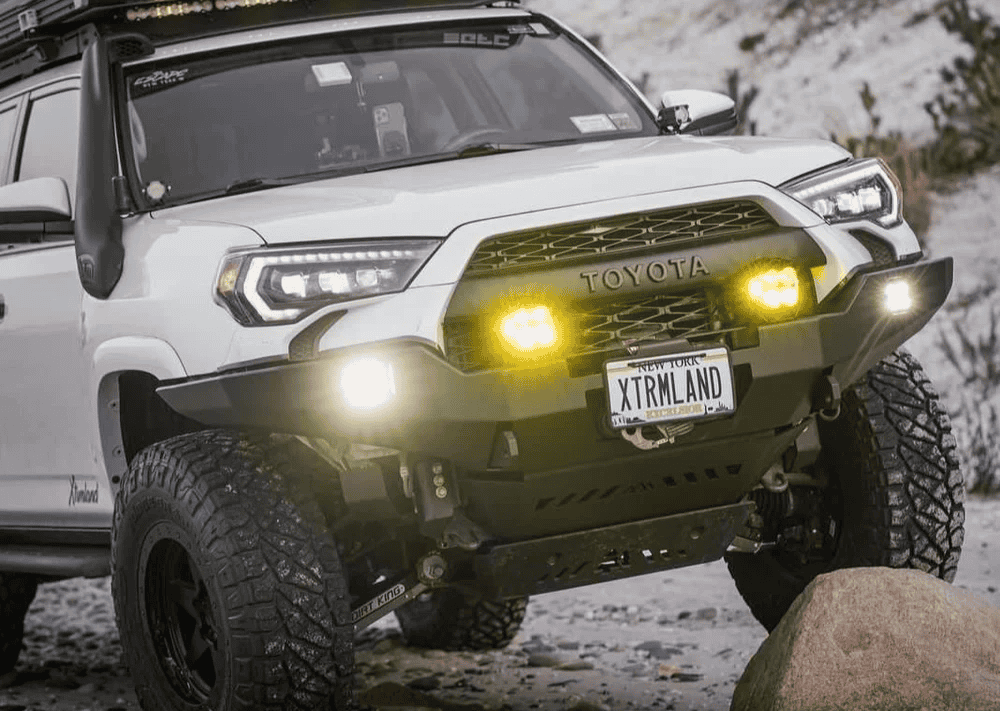Overland Vehicles

An overland festival gathers travelers, trainers, and brands for a long weekend of camps, classes, and trail talk. It is where first timers and seasoned drivers trade route intel, inspect gear in person, and learn skills that make remote travel safer. Expect morning clinics, daytime seminars, evening campfire meetups, and rows of vehicles that show real world layouts. Unlike car meets or racing events, the focus is self reliance, backcountry etiquette, and multi day travel. It is a practical way to compress a year of research into a few days.
You will see overland shows blend education with hands on demos. Instructors cover topics like water planning, navigation, tire repair, and field cooking. Vehicle walkthroughs reveal what works for families versus solo travelers, and vendors let you test equipment before buying. Overland events often include skills areas for spotting, hill starts, and recovery drills so you can practice with supervision. The best takeaways are often the small tips you only learn by watching others pack, drive, and live out of a rig.
Walk vendor rows with a notebook. Compare roof tents in the rain, listen for fan noise in fridges, test chair comfort, and check mounting hardware. Hands on time reduces buyer regret and helps you pick the right setup for your mileage, climate, and terrain.
Planning your year around an overland festival or two helps you set deadlines and test your kit before longer routes. Many travelers time a shakedown weekend before and after big gatherings to dial tire pressures, load distribution, and sleep systems. If you are chasing new regions, shows also provide regional insights from locals who run those trails weekly. Building a calendar of travel blocks lets you pace vacation days, seasonal weather windows, and permit requirements.
Search official channels for overland expo 2025 dates across the West, PNW, Mountain West, and East stops. Dates are typically released by organizers, and they can shift with venue availability or local regulations. Use the announcement as a planning anchor, then lock campsites and travel days early. Keep a flexible route plan and a backup camp within reasonable distance of the venue, since weather or fire restrictions can change regional access. Pack for heat, dust, wind, and sudden rain even during fair weather months.
Subscribe to event newsletters, add calendar alerts, and verify details on official pages before booking travel. Aim to arrive a day early for parking, camp setup, and your first seminar block without rushing.
Overland offroad driving is about control, not speed. Start with tire pressures that match load and terrain, steady throttle, and careful spotting through obstacles. Practice hill starts, side slope awareness, and turning radius on narrow tracks. A good approach is to refine the driver first, then upgrade components to match your routes. For many rigs, appropriate tires, recovery points, and skid protection add more confidence than cosmetic parts.
A reliable electrical system supports cold fridges, comms, and lights over multiple days. If you carry a compressor, tools, and recovery gear, store them low and centered to keep handling predictable. Navigation should include offline maps, paper backups, and a plan for group comms. Think in layers: driving skills, vehicle protection, power and water management, then comfort. The goal is to maintain mobility and camp efficiently.
Carry a rated strap, soft shackles, a shovel, traction boards, a tire repair kit, and a real jack base. Practice communication before a pull, clear the area, and use gear within rated limits. Patience prevents damage and keeps the day on track.
Whether you are new to this world or refining a seasoned setup, a thoughtful build makes every mile easier. Balanced suspension, adequate payload, and organized storage reduce fatigue and improve safety. If you plan to attend an overland festival as your first big shakedown, confirm weight with a scale and use that data to choose spring rates and damping that fit your travel weight, not just the empty vehicle. Match range to your route with realistic fuel or charge planning, and measure your fridge and lighting draw so your battery system can comfortably run through cloudy days. Aim for a layout that supports quick camp breaks, since the best detours often appear without warning.
When the schedule is set and your packing list is trimmed, use the event to pressure test your plan. Take notes during classes, ask vendors about service intervals, and capture photos of smart mounting solutions. During the final night in camp, review what stayed in the bins untouched and what you reached for on repeat. That short audit becomes your upgrade map for the rest of the season.
Ready to show up prepared and roll out for a longer loop the morning after the show ends. If you want a professional hand translating lessons from overland events into a capable, dependable build, explore Overland rigs by OZK Customs. For targeted components that elevate your current platform, review Custom overland upfit options. If you are deciding who should engineer the vehicle that carries your family and gear, learn more at Why choose OZK Customs. We craft complete custom overland builds and focused upfits that prioritize range, protection, storage, and power management, then deliver a thorough handoff so you leave confident and ready to roam.
If this season is your year to explore further, let OZK Customs build the rig that fits your routes, crew size, and off grid goals. From complete custom overland builds to targeted upfits, we dial in suspension, power, storage, and protection so you can arrive ready on day one. Share your timeline and travel style in the form and we will propose a clear path from concept to handoff.
ADDRESS:
6159 E Huntsville Rd, Fayetteville, AR 72701
PHONE:
(479) 326-9200
EMAIL:
info@ozkvans.com